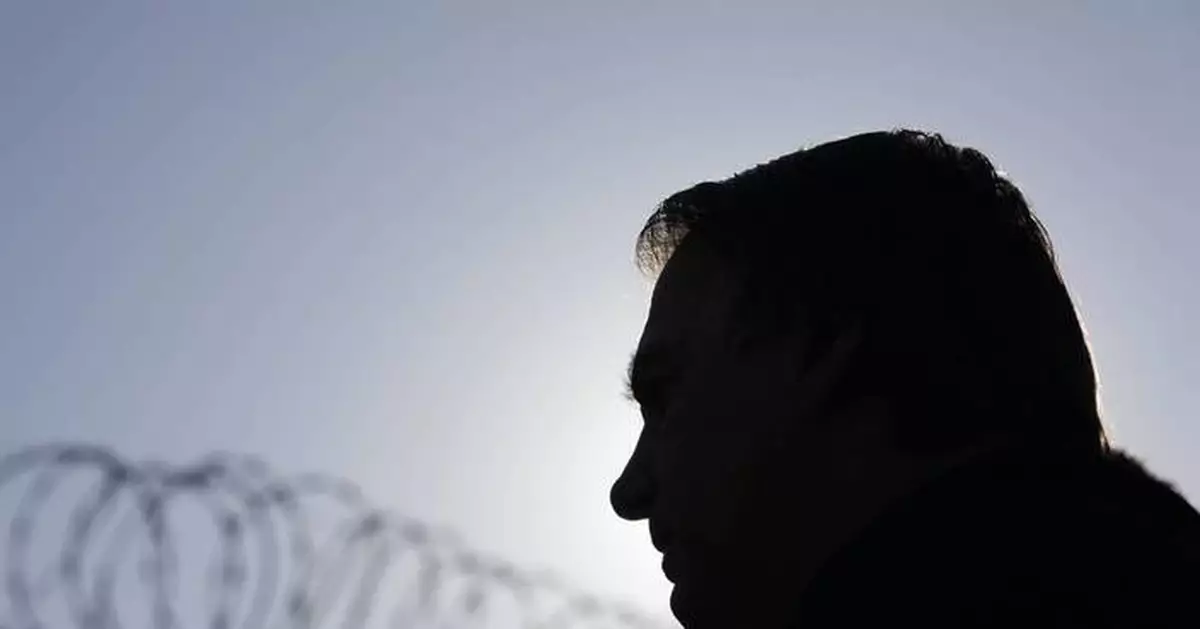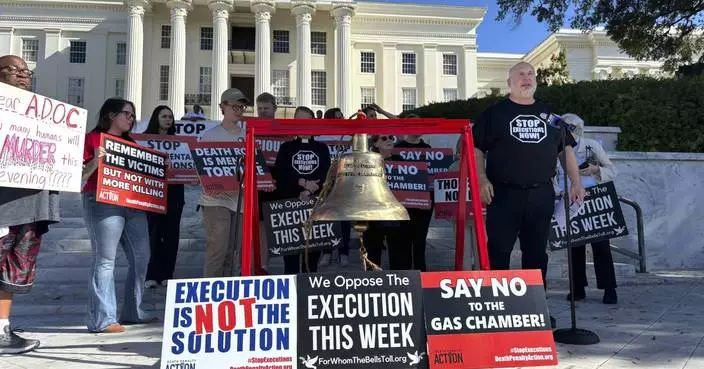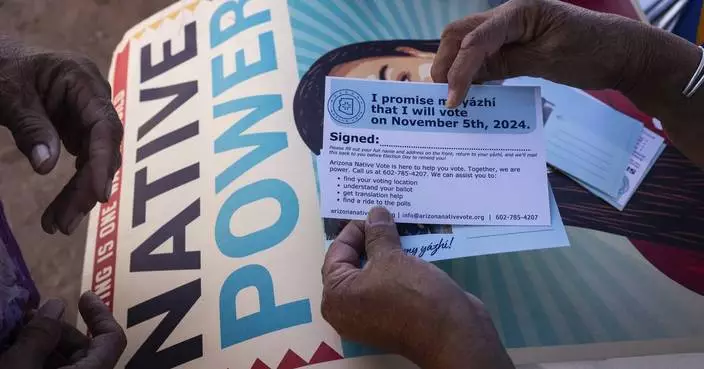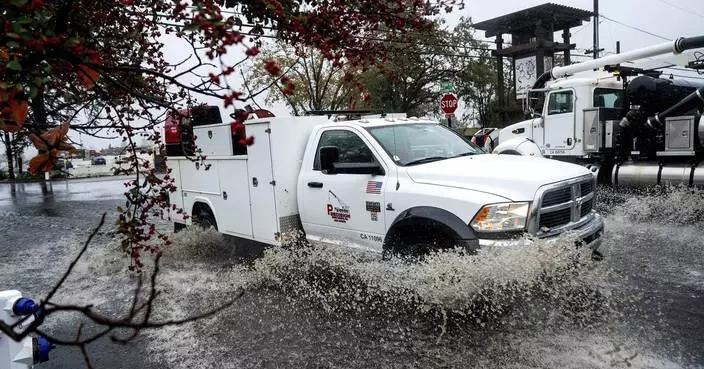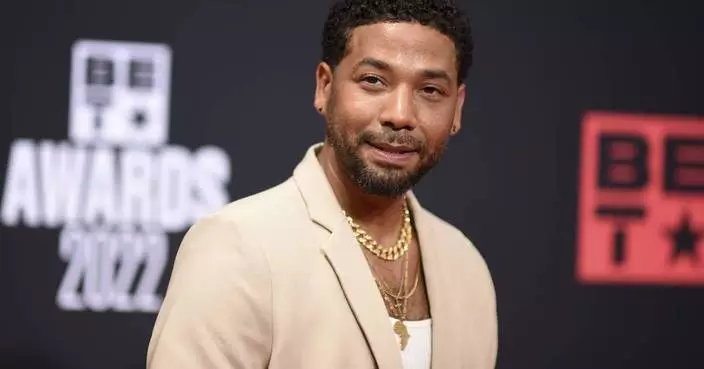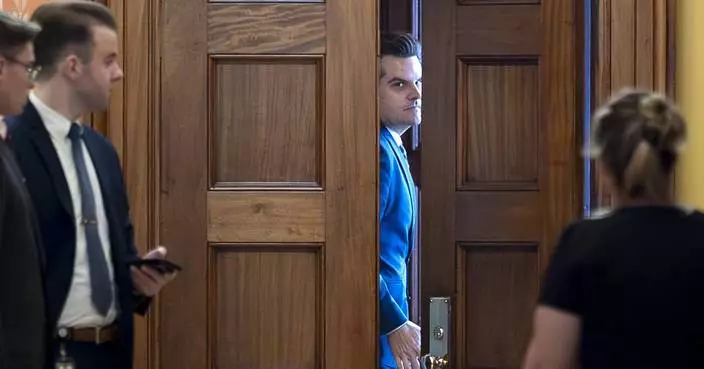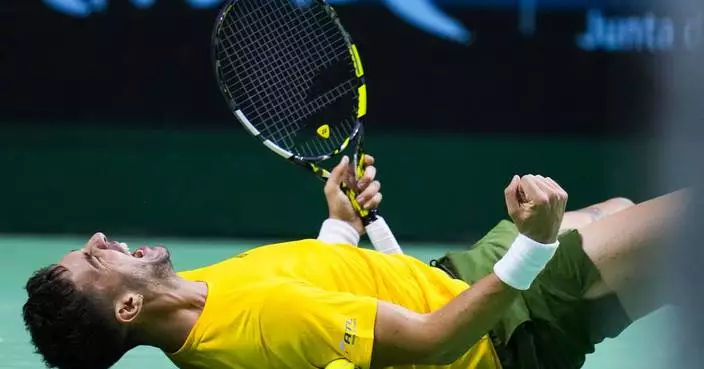SAO PAULO (AP) — Brazil's former President Jair Bolsonaro has been a target for investigations since his early days in office, and the swarm of cases since his failed reelection bid in 2022 has left him in ever-deeper legal jeopardy.
In the latest indictment Thursday, he was accused of attempting a coup to keep himself in the presidency. In another case, the electoral court ruled the far-right leader ineligible to run for office until 2030.
Click to Gallery
FILE - Brazilian President Jair Bolsonaro votes in the run-off presidential election as he runs for another term in Rio de Janeiro, Brazil, Oct. 30, 2022. (AP Photo/Bruna Prado, Pool, File)
FILE - Police stand on the other side of a window at Planalto Palace that was shattered by supporters of Brazil's former President Jair Bolsonaro after they stormed the official workplace of the president in Brasilia, Brazil, Jan. 8, 2023. (AP Photo/Eraldo Peres, File)
FILE - This photo provided by Brazil's Federal Revenue Department shows jewelry, part of an investigation into gifts received by ex-President Jair Bolsonaro during his term, seized by customs authorities at Guarulhos International Airport in Sao Paulo, Brazil, the week of March 24, 2023. (Brazil's Federal Revenue Department via AP, File)
FILE - A demonstrator holds a banner showing Brazilian President Jair Bolsonaro adjusting his mask in Brasilia, Brazil, Aug. 7, 2020, as the Central Workers Unions (CUT) protest his handling of the new coronavirus pandemic. (AP Photo/Eraldo Peres, File)
FILE - In a silhouette, Brazil's former President Jair Bolsonaro speaks to the media upon arrival to the airport in Brasilia, Brazil, June 29, 2023, where Supreme Electoral Court judges evaluate the case which claims he abused his power by using government communication channels to promote his campaign and cast unfounded doubts on the country's electronic voting system. (AP Photo/Eraldo Peres, File)
There are dozens of other probes that could produce criminal charges at low-level courts, where he could appeal any eventual conviction. But the country's Supreme Court will have the final say regarding more than five in-depth investigations, including into the alleged coup attempt, which could land the former president behind bars or under house arrest.
Bolsonaro has denied wrongdoing in all of the cases, and his allies have alleged they are political persecution, while recognizing the severity of the legal risks on multiple fronts.
Here's a look at the biggest threats and where they stand:
Federal police on Thursday indicted Bolsonaro and 36 others for allegedly attempting a coup to keep him in office after his defeat in the 2022 elections. The indictment is sealed, but among other things authorities had been investigating whether he incited the Jan. 8, 2022 riot in which his followers ransacked the Supreme Court and presidential palace in the capital of Brasilia.
STATUS: Police sent their findings to Brazil’s Supreme Court, which will refer them to Prosecutor-General Paulo Gonet. He will either formally charge Bolsonaro and put him on trial, or toss the investigation.
Brazil’s highest electoral court in June ruled that Bolsonaro used government communication channels in a meeting with diplomats to promote his reelection bid and sow distrust about the vote. The case focused on a meeting the prior year, during which Bolsonaro used government staffers, the state television channel and the presidential palace in Brasilia to tell foreign ambassadors that the country’s electronic voting system was rigged. The ruling rendered him ineligible for office until 2030, although he has insisted that he will run in the 2026 race.
The court also found that Bolsonaro abused his power during Brazil’s Independence Day festivities, a month before the election. The ruling didn’t add years to Bolsonaro’s ineligibility, but made any appeal less likely to succeed. A third case is also pending at the court.
STATUS: Bolsonaro’s appeal of the initial ruling was denied.
Bolsonaro has been indicted for directing an official to tamper with a public health database to make it appear as though he and his 12-year-old daughter had received the COVID-19 vaccine in order to bypass U.S. entry requirements. During the pandemic, he railed against the vaccine, characterized the choice to receive a shot as a matter of personal freedom and has repeatedly said he never did so.
The Federal Police accused Bolsonaro of criminal association and inserting false data into public records, which carry maximum penalties of 4 and 12 years in prison, respectively. It was his first indictment since leaving office.
STATUS: Brazil's Supreme Court sent the indictment to the prosecutor-general, who is weighing whether to use it to press charges. Local media reported that he was seeking to consult American authorities about whether Bolsonaro used the forged document to enter the country, and that having done so could result in U.S. legal action.
Federal Police have probed whether Bolsonaro directed officials to smuggle luxury jewelry worth millions into Brazil from Saudi Arabia and Bahrain, then acted to prevent them from being incorporated into the presidential collection and instead retain ownership for himself.
Investigators summoned Bolsonaro for questioning in April and August of 2023. He has returned the jewelry in question.
STATUS: The Federal Police indicted Bolsonaro for money laundering and criminal association, according to a source with knowledge of the accusations. A second source confirmed the indictment, although not for which specific crimes. Both spoke on condition of anonymity because they weren’t authorized to speak publicly.
Brazil’s Federal Police is investigating Bolsonaro for inciting crimes against public health during the COVID-19 pandemic, which include encouraging people not to wear masks and causing alarm about non-existent danger of vaccines accelerating development of AIDS. A Senate inquiry commission also spent months investigating his pandemic-era actions and decisions, and recommended nine criminal charges.
Brazil’s former prosecutor-general Augusto Aras, widely seen as a Bolsonaro ally, decided not to file any charges based on the lawmakers' findings. They have urged his Aras' successor to reopen the case.
STATUS: The investigation is ongoing.
Brazil's Supreme Court in 2020 ordered an investigation into a network allegedly spreading defamatory fake news and threats against Supreme Court justices. The probe has yielded the imprisonment of lawmakers from the former president's circle and raids of his supporters' homes. In 2021, Bolsonaro was included as a target.
As an offshoot of that probe, the Federal Police is also investigating whether a group operating inside Bolsonaro’s presidential palace produced social media content aimed at undermining the rule of law. The group, allegedly comprised of aides and Bolsonaro’s politician son, has been widely referred to as a digital militia and “the hate cabinet.”
STATUS: Both investigations are ongoing.
Biller reported from Rio de Janeiro
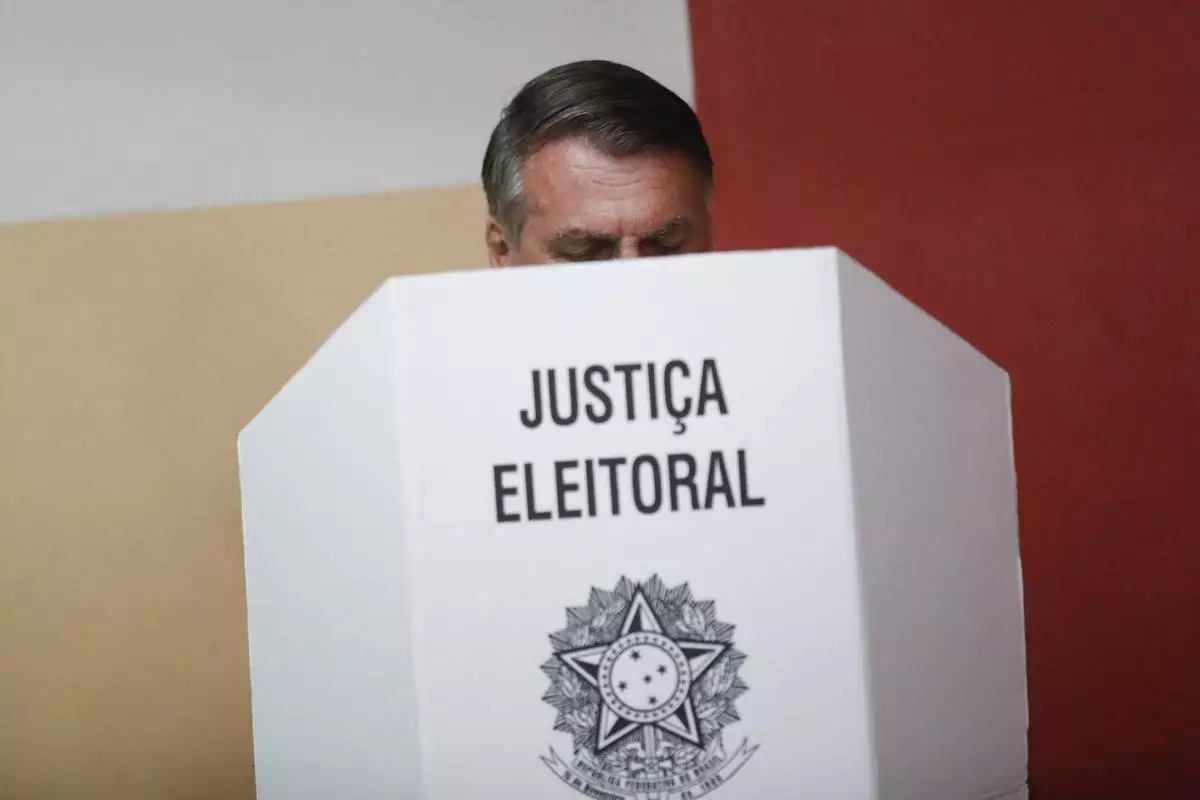
FILE - Brazilian President Jair Bolsonaro votes in the run-off presidential election as he runs for another term in Rio de Janeiro, Brazil, Oct. 30, 2022. (AP Photo/Bruna Prado, Pool, File)
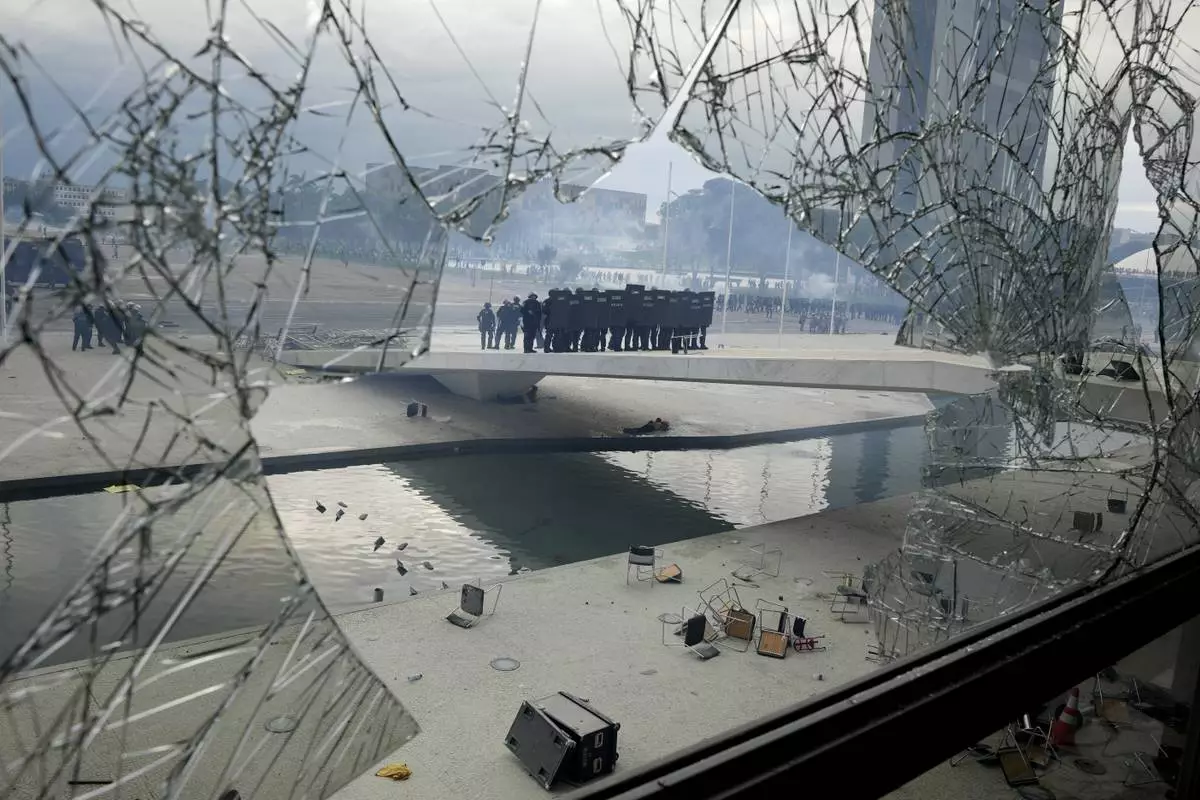
FILE - Police stand on the other side of a window at Planalto Palace that was shattered by supporters of Brazil's former President Jair Bolsonaro after they stormed the official workplace of the president in Brasilia, Brazil, Jan. 8, 2023. (AP Photo/Eraldo Peres, File)

FILE - This photo provided by Brazil's Federal Revenue Department shows jewelry, part of an investigation into gifts received by ex-President Jair Bolsonaro during his term, seized by customs authorities at Guarulhos International Airport in Sao Paulo, Brazil, the week of March 24, 2023. (Brazil's Federal Revenue Department via AP, File)
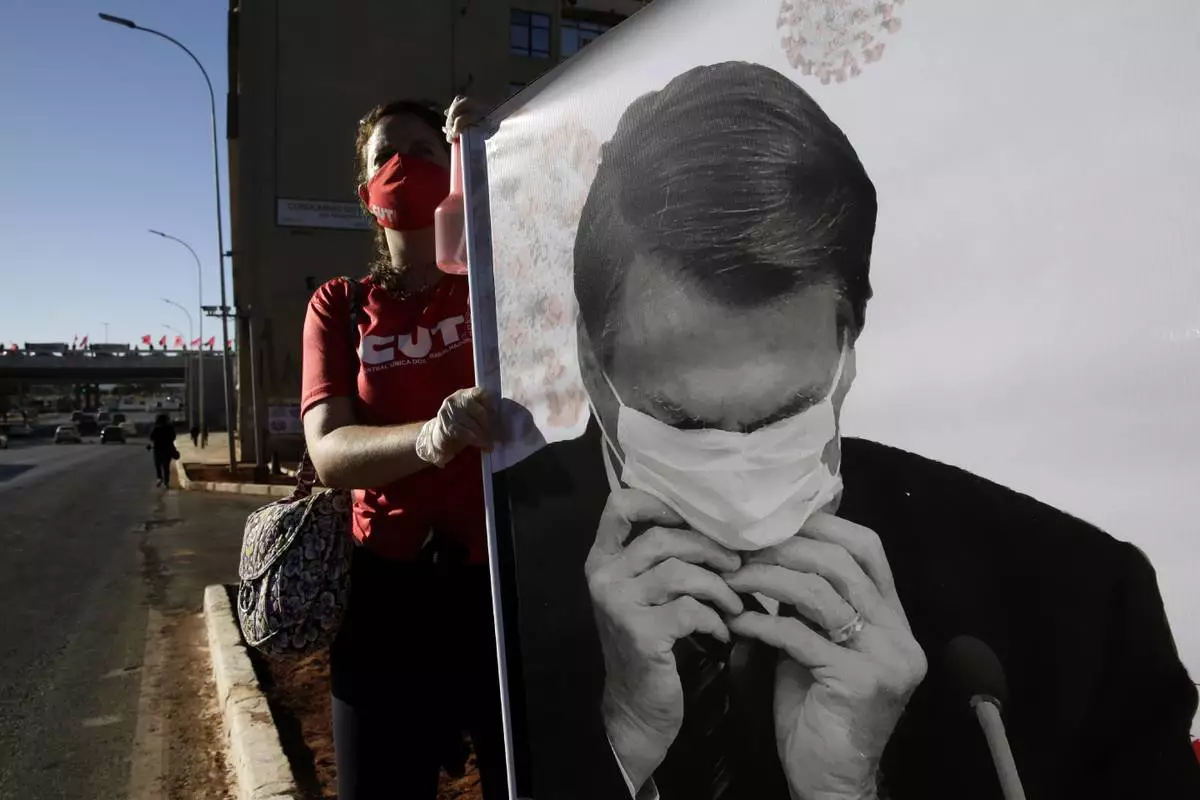
FILE - A demonstrator holds a banner showing Brazilian President Jair Bolsonaro adjusting his mask in Brasilia, Brazil, Aug. 7, 2020, as the Central Workers Unions (CUT) protest his handling of the new coronavirus pandemic. (AP Photo/Eraldo Peres, File)
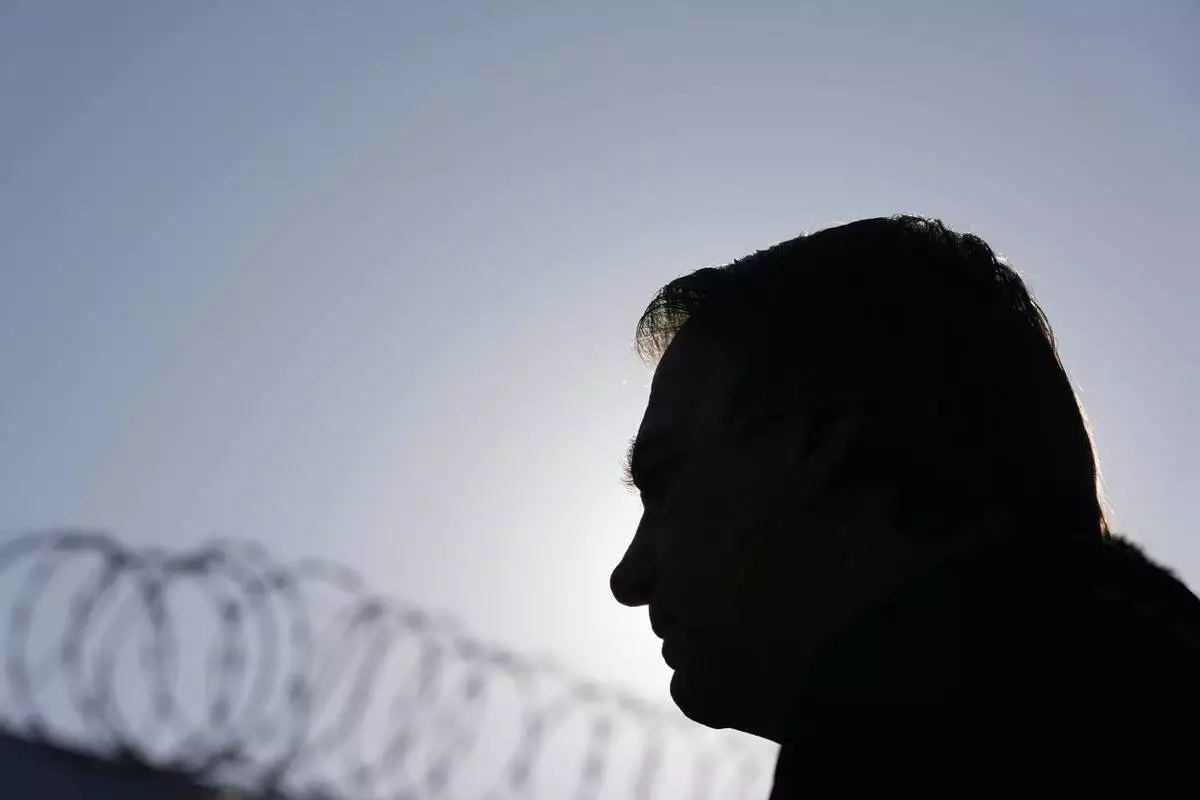
FILE - In a silhouette, Brazil's former President Jair Bolsonaro speaks to the media upon arrival to the airport in Brasilia, Brazil, June 29, 2023, where Supreme Electoral Court judges evaluate the case which claims he abused his power by using government communication channels to promote his campaign and cast unfounded doubts on the country's electronic voting system. (AP Photo/Eraldo Peres, File)
THE HAGUE (AP) — The world’s top war-crimes court issued arrest warrants Thursday for Israeli Prime Minister Benjamin Netanyahu, his former defense minister and Hamas’ military chief, accusing them of crimes against humanity in connection with the 13-month war in Gaza.
The warrants said there was reason to believe Netanyahu and former Defense Minister Yoav Gallant have used “starvation as a method of warfare” by restricting humanitarian aid and have intentionally targeted civilians in Israel’s campaign against Hamas in Gaza — charges Israeli officials deny.
The action by the International Criminal Court came as the death toll from Israel’s campaign in Gaza passed 44,000 people, according to local health authorities, who say more than half of those killed were women and children. Their count does not differentiate between civilians and combatants.
Experts say hunger has become widespread across Gaza and may have reached famine levels in the north of the territory, which is under siege by Israeli troops. Israel says it has been working hard to improve entry of aid, though the trickle of supplies into Gaza remains near the lowest levels of the war.
Netanyahu condemned the warrant against him, saying Israel “rejects with disgust the absurd and false actions” by the court. In a statement released by his office, he said: “There is nothing more just than the war that Israel has been waging in Gaza.”
Gallant, in a statement, said the decision "sets a dangerous precedent against the right to self-defense and moral warfare and encourages murderous terrorism.”
The warrant marked the first time that a sitting leader of a major Western ally has been accused of war crimes and crimes against humanity by a global court of justice. The decision turns Netanyahu and the others into internationally wanted suspects, putting them at risk of arrest when they travel abroad and potentially further isolating them.
Israel and its top ally, the United States, are not members of the court. But others of Israel's allies, including some of its close European friends, are put in an awkward position. Several, including France, welcomed the court's decision and signaled they might arrest Netanyahu if he visited.
White House press secretary Karine Jean-Pierre said President Joe Biden's administration was “deeply concerned by the prosecutor’s rush to seek arrest warrants and the troubling process errors that led to this decision.”
The warrants represent "the most dramatic step yet in the court’s involvement in the conflict between Israel and Hamas," said Anthony Dworkin, senior policy fellow at the European Council on Foreign Relations.
Israeli leaders, politicians and officials across the spectrum denounced the warrants and the ICC. The new defense minister, Israel Katz, who replaced Gallant earlier this month, said Thursday’s decision is “a moral disgrace, entirely tainted by antisemitism, and drags the international judicial system to an unprecedented low.”
Human rights groups applauded the move.
The warrants against both sides “break through the perception that certain individuals are beyond the reach of the law,” the associate international justice director at Human Rights Watch, Balkees Jarrah, said in a statement.
The decision came six months after ICC Chief Prosecutor Karim Khan requested the warrants.
The court issued a warrant for Mohammed Deif, head of Hamas’ armed wing, over the Oct. 7, 2023, attacks that triggered Israel’s offensive in Gaza. It said it found reasonable grounds to believe Deif was involved in murder, rape, torture and the taking of hostages amounting to war crimes and crimes against humanity.
In the Hamas-led attack, militants stormed into southern Israel, killing 1,200 people — mostly civilians — and taking some 250 others hostage. Around 100 Israelis remain captive in Gaza, around a third of them believed to be dead.
Khan withdrew requests for warrants for two other senior Hamas figures, Yahya Sinwar and Ismail Haniyeh, who have both since been killed. Israel says it also killed Deif in an airstrike, but Hamas has never confirmed his death.
The warrants for Netanyahu and Gallant were issued by a three-judge panel in a unanimous decision. The panel said there were reasonable grounds to believe that both men bear responsibility for the war crime of starvation and the crimes against humanity of murder, persecution and other inhumane acts.
The judges said the lack of food, water, electricity, fuel and specific medical supplies created conditions “calculated to bring about the destruction of part of the civilian population in Gaza,” including the deaths of children due to malnutrition and dehydration.
They also found that by preventing hospital supplies and medicine from getting into Gaza, doctors were forced to operate, including performing amputations, without anesthesia or with unsafe means of sedation that led to “great suffering.”
Israeli diplomatic officials said the government is lobbying the international community to speak out against the warrants and is considering an appeal to the court. The officials spoke on condition of anonymity pending a formal decision on how the government will proceed.
Despite the warrants, none of the suspects is likely to face judges in The Hague anytime soon. Member countries are required to detain suspects facing a warrant if they set foot on their soil, but the court has no way to enforce that.
For example, Russian President Vladimir Putin, wanted on an ICC warrant for alleged war crimes in Ukraine, recently visited Mongolia, a member state in the court but also a Russian ally. He was not arrested.
Still, the threat of arrest now complicates any travel abroad by Netanyahu and Gallant. EU foreign policy chief Josep Borrell said the warrants are binding on all 27 members countries of the European Union.
France signaled it could arrest Netanyahu if he came to its territory. Foreign Ministry spokesman Christophe Lemoine called it a “complex legal issue” but said France supports the court’s actions.
“Combating impunity is our priority,” he said. “Our response will align with these principles.”
Hamas in a statement welcomed the warrants against Netanyahu and Gallant but made no mention of the one against Deif.
Israel’s opposition leaders fiercely criticized the ICC’s move. Benny Gantz, a retired general and political rival to Netanyahu, said it showed “moral blindness” and was a “shameful stain of historic proportion that will never be forgotten.”
Israel’s campaign has caused heavy destruction across Gaza and driven almost the entire population of 2.3 million people from their homes, leaving most dependent on aid to survive.
Two days after Hamas’ attack on southern Israel, Gallant announced a total seal on Gaza, vowing not to let in food, fuel or other supplies. Under U.S. pressure, Israel began allowing a trickle of humanitarian aid to enter a few weeks later.
Israel now says it puts no limit on the supplies permitted into Gaza, and it blames the U.N. distribution system. But Israel's official figures show the amount of aid it has let in has plunged since the beginning of October. The U.N has blamed Israeli military restrictions, along with widespread lawlessness that has led to theft of aid shipments.
The case at the ICC is separate from another legal battle Israel is waging at the top U.N. court, the International Court of Justice, in which South Africa accuses Israel of genocide, an allegation Israeli leaders staunchly deny.
Lawyers for Israel argued in court that the war in Gaza was a legitimate defense of its people and that it was Hamas militants who were guilty of genocide.
Associated Press journalists Raf Casert in Brussels, Mike Corder in The Hague and Josef Federman in Jerusalem contributed to this report.
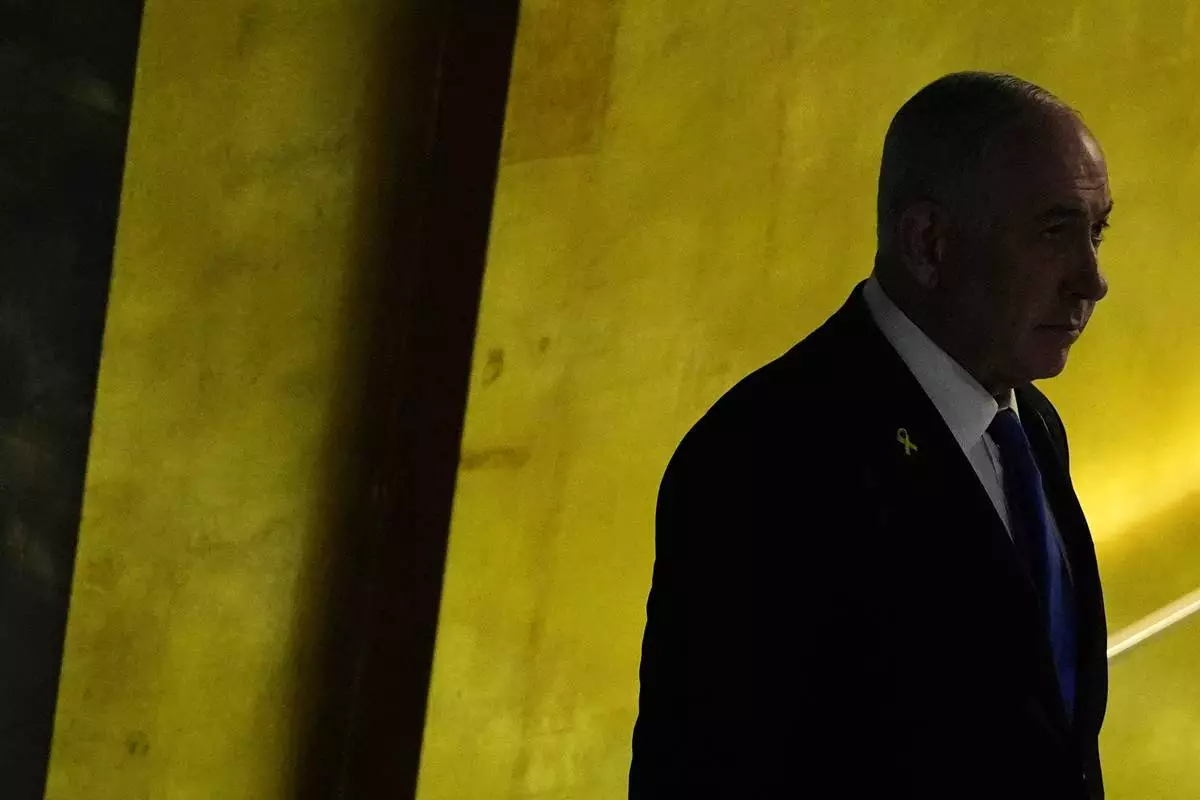
FILE - Prime Minister of Israel Benjamin Netanyahu enters the 79th session of the United Nations General Assembly, Friday, Sept. 27, 2024. (AP Photo/Pamela Smith, File)
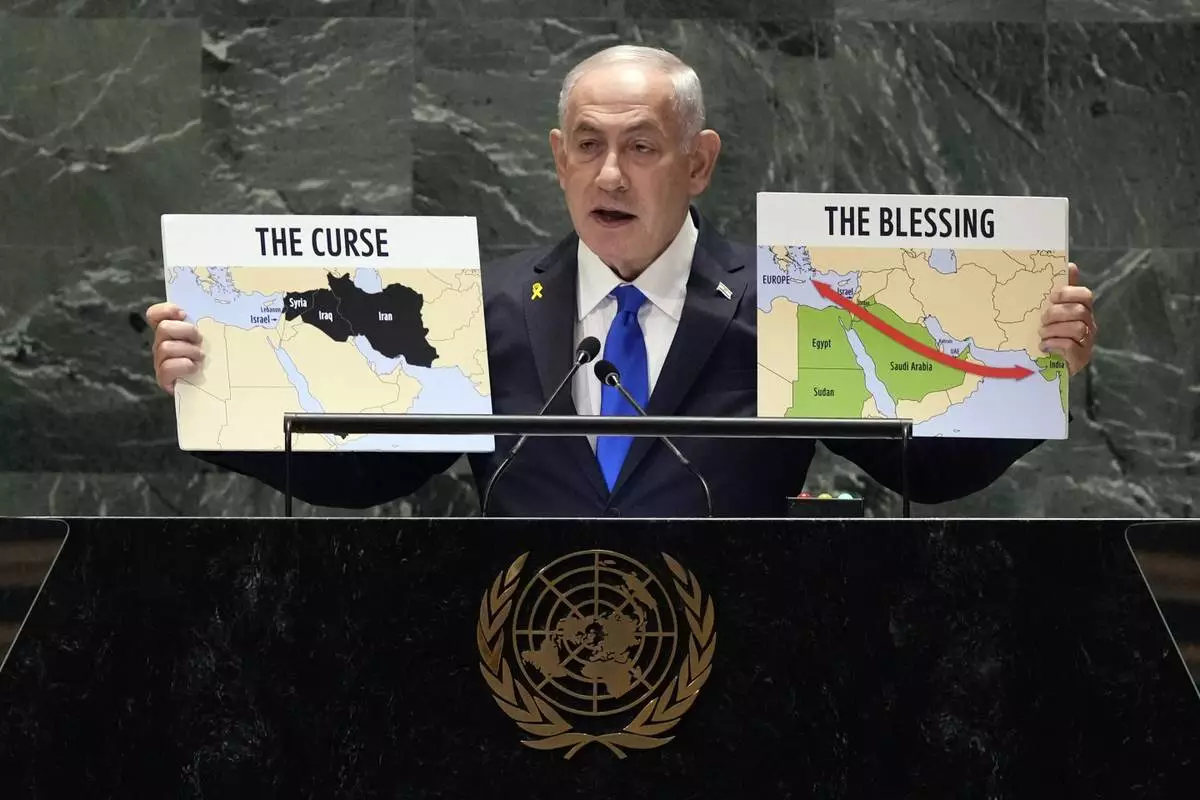
FILE - Israel Prime Minister Benjamin Netanyahu addresses the 79th session of the United Nations General Assembly, Friday, Sept. 27, 2024. (AP Photo/Richard Drew, File)
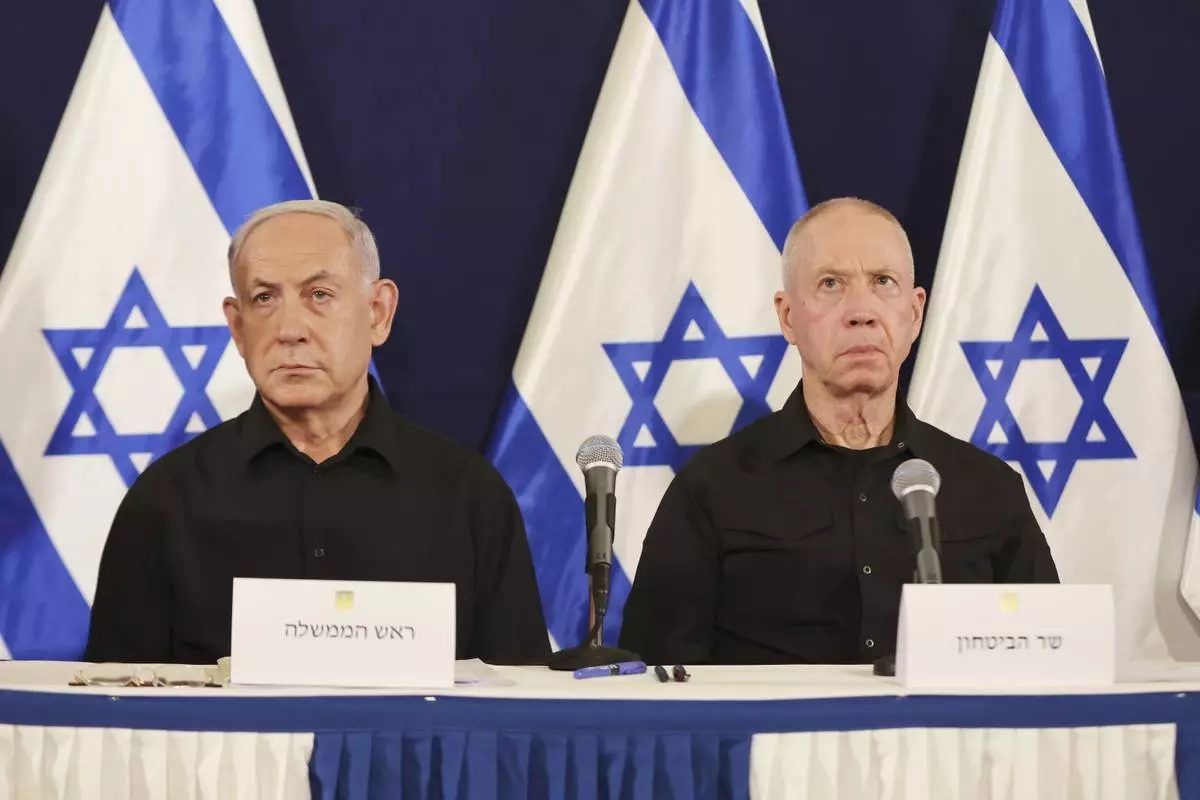
FILE - Israeli Prime Minister Benjamin Netanyahu, left, and Defense Minister Yoav Gallant attend a press conference in the Kirya military base in Tel Aviv, Israel, Saturday, Oct. 28, 2023. (Abir Sultan/Pool Photo via AP, File)
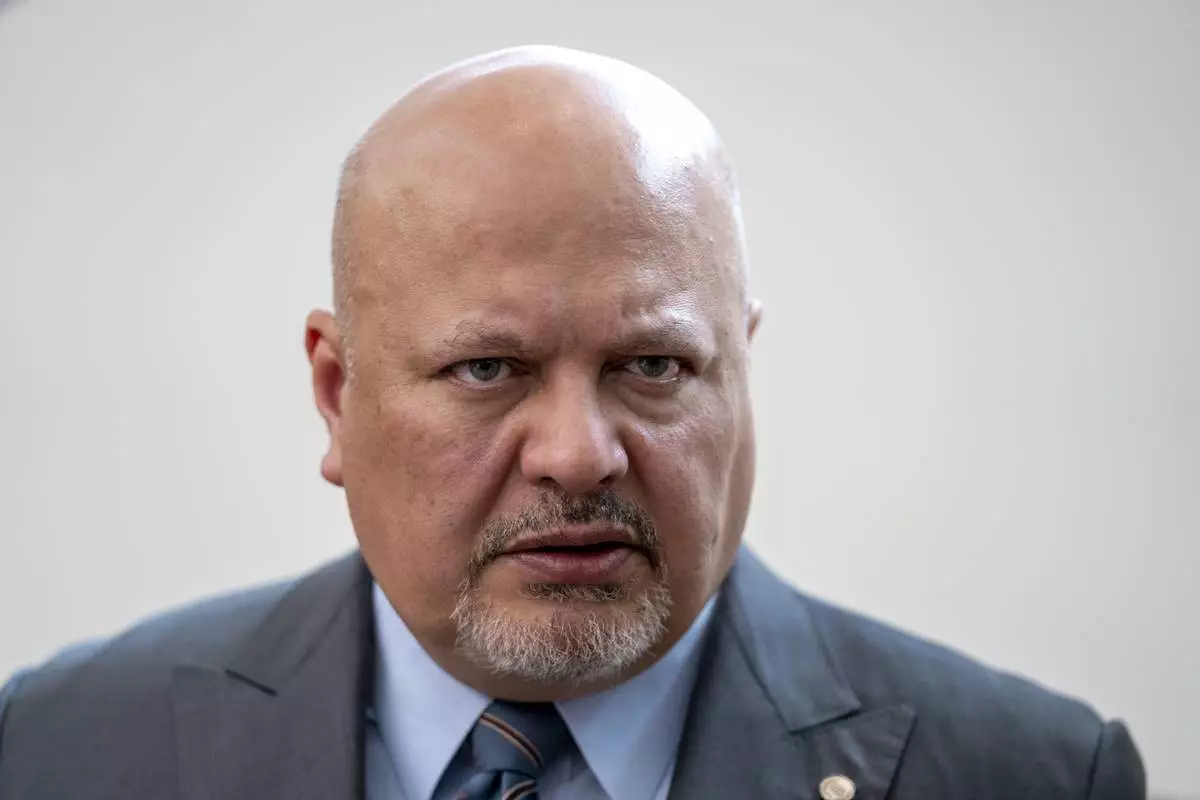
FILE - Karim Khan, Prosecutor of the International Criminal Court looks up prior to a press conference in The Hague, Netherlands, Monday, July 3, 2023. (AP Photo/Peter Dejong, File)
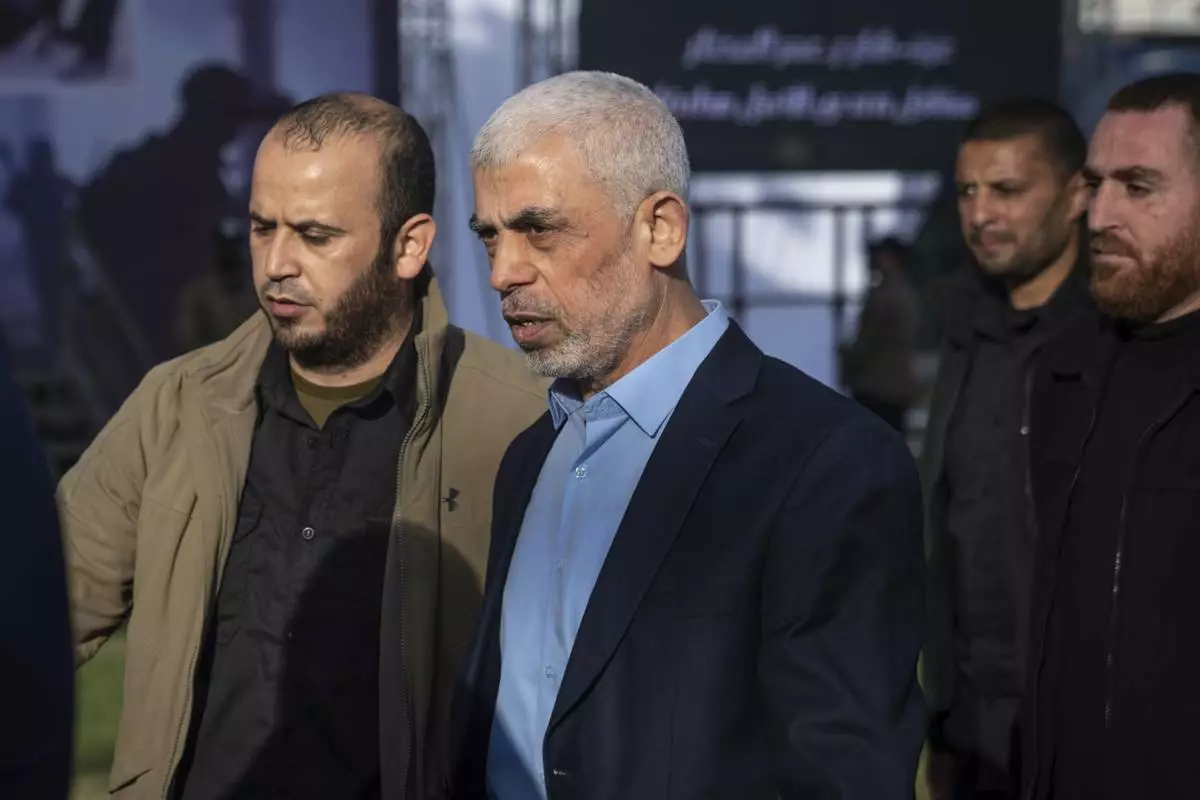
FILE - Yehiyeh Sinwar, head of Hamas in Gaza, attends a rally marking "Jerusalem Day," or Al-Quds Day, an annual celebration to support Palestinians in the holy city, at a soccer filed in Gaza City, on April 14, 2023. (AP Photo/Fatima Shbair, File)
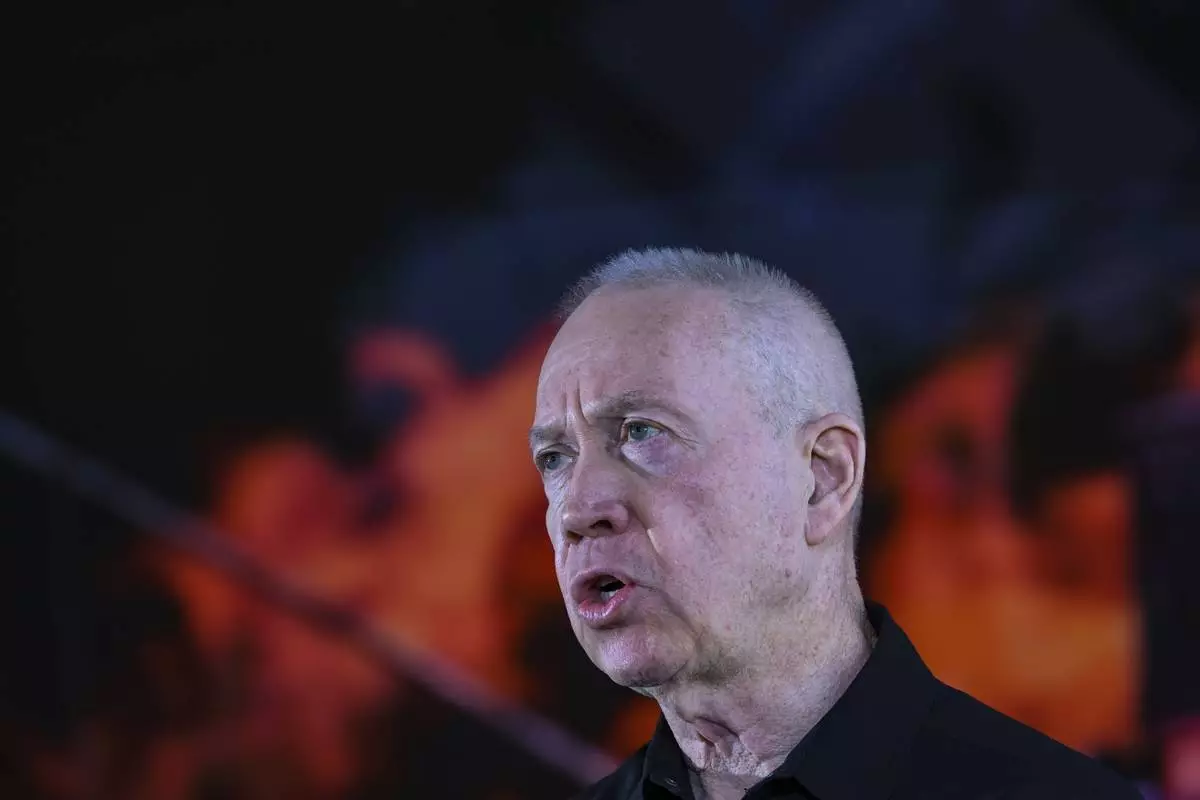
FILE - Israel's Defense Minister Yoav Gallant speaks during a ceremony marking the Hebrew calendar anniversary of the Hamas attack on October 7 last year that sparked the ongoing war in Gaza, at the Mount Herzl military cemetery in Jerusalem, Israel Sunday Oct. 27, 2024. (Gil Cohen-Magen/Pool Photo via AP, File)
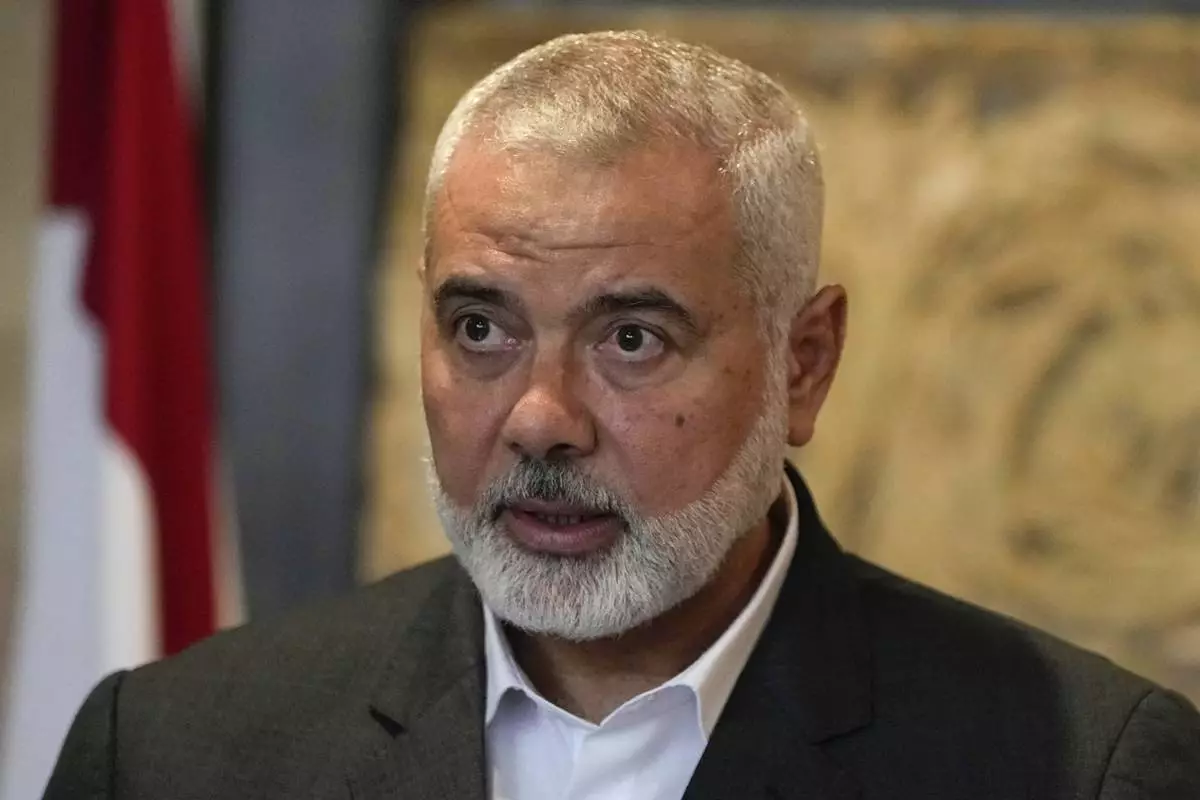
FILE - Ismail Haniyeh, leader of the Palestinian militant group Hamas, speaks to journalists after his meeting with Lebanese Parliament Speaker Nabih Berri, in Beirut, Lebanon, June 28, 2021. (AP Photo/Hassan Ammar, File)
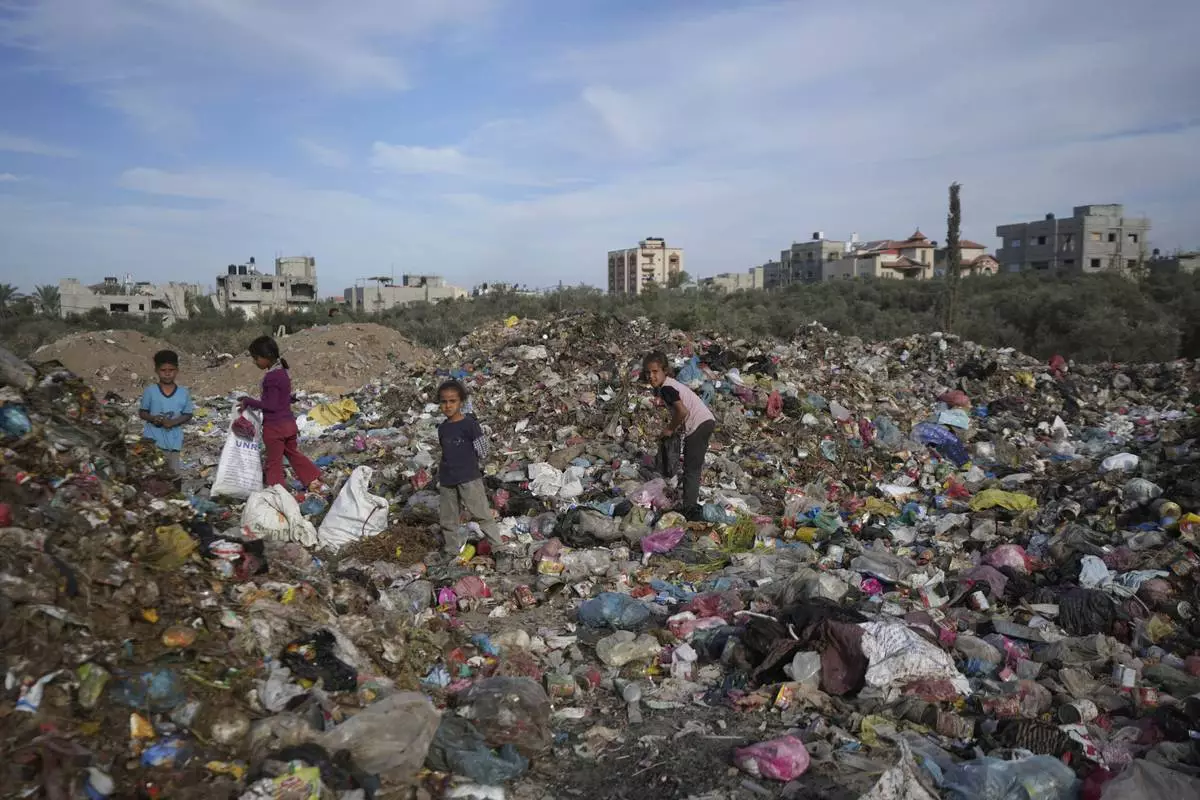
Palestinian kids sort through trash at a landfill in Zawaida, Gaza Strip, Sunday, Nov. 17, 2024. (AP Photo/Abdel Kareem Hana)
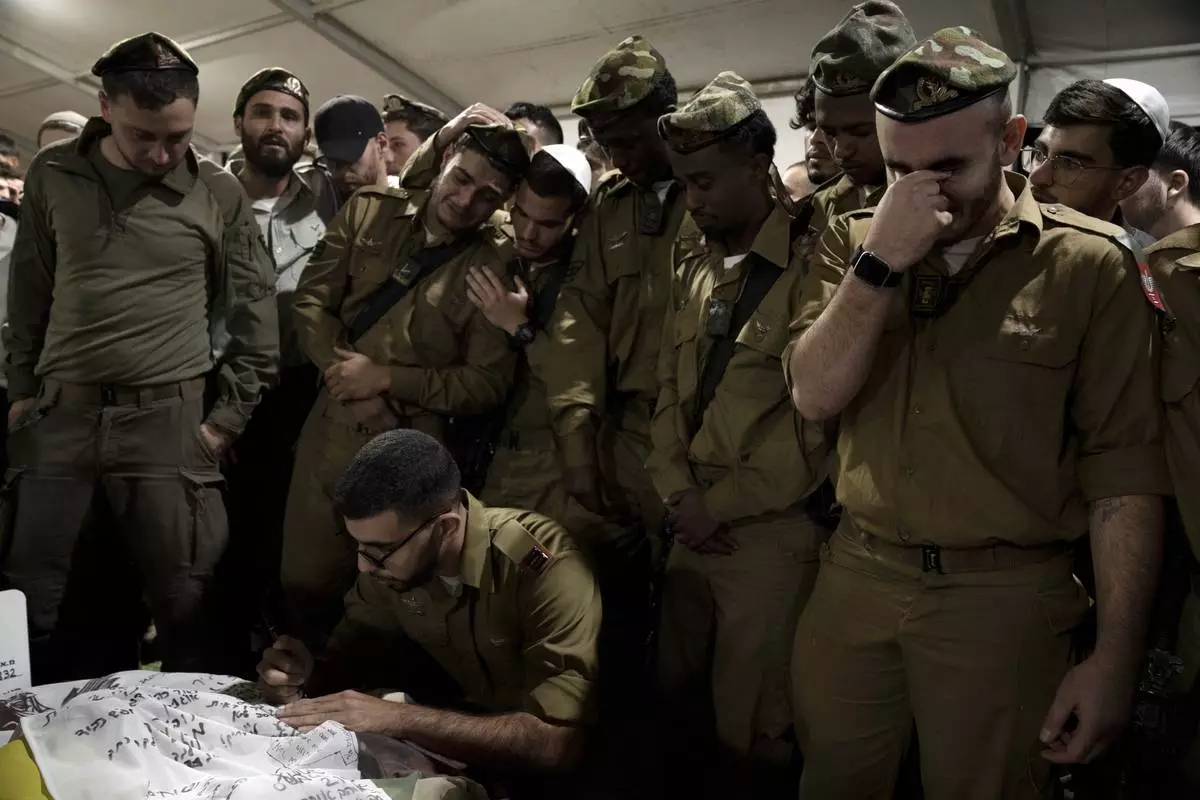
Israeli Defense Forces soldiers mourn at the grave of Sgt. First Class (res.) Roi Sasson, who was killed in action in the Gaza Strip, during his funeral at Mt. Herzl military cemetery in Jerusalem, Wednesday, Nov. 20, 2024. (AP Photo/Maya Alleruzzo)
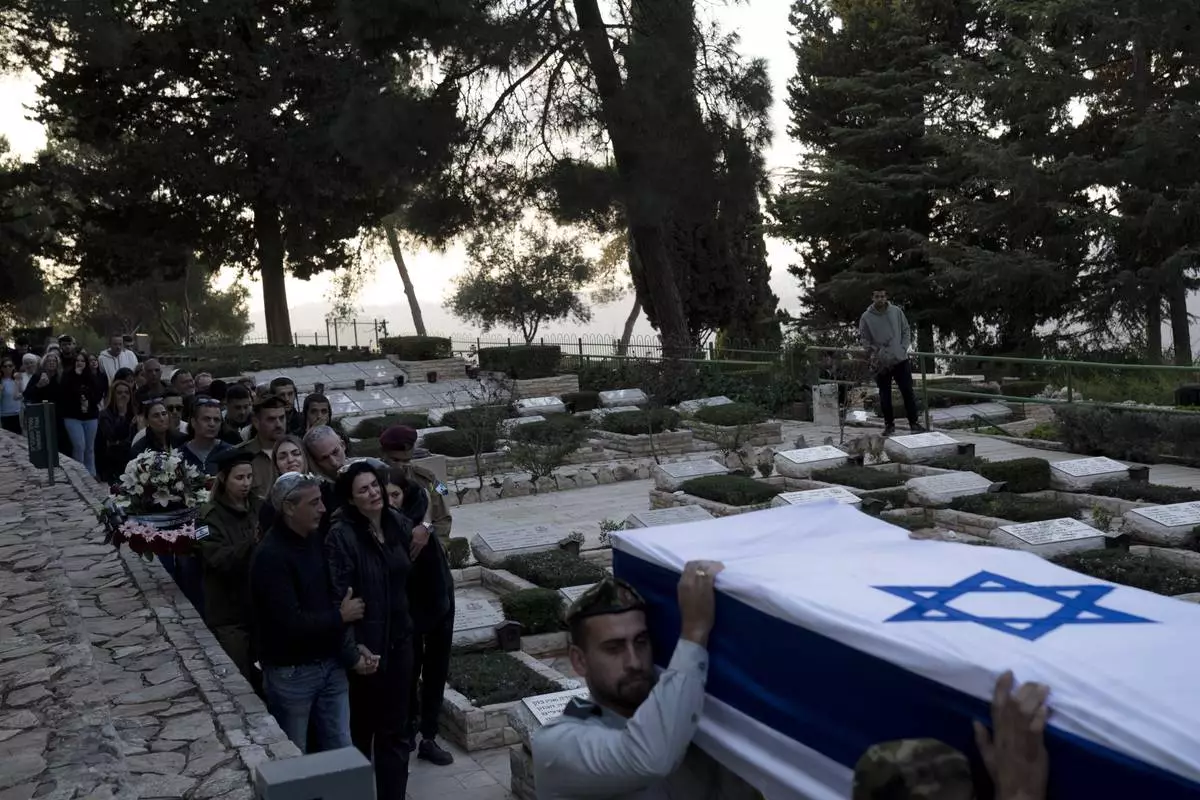
The family of Israeli Defense Forces Sgt. First Class (res.) Roi Sasson, who was killed in action in the Gaza Strip, walk behind his coffin during his funeral at Mt. Herzl military cemetery in Jerusalem, Wednesday, Nov. 20, 2024. (AP Photo/Maya Alleruzzo)
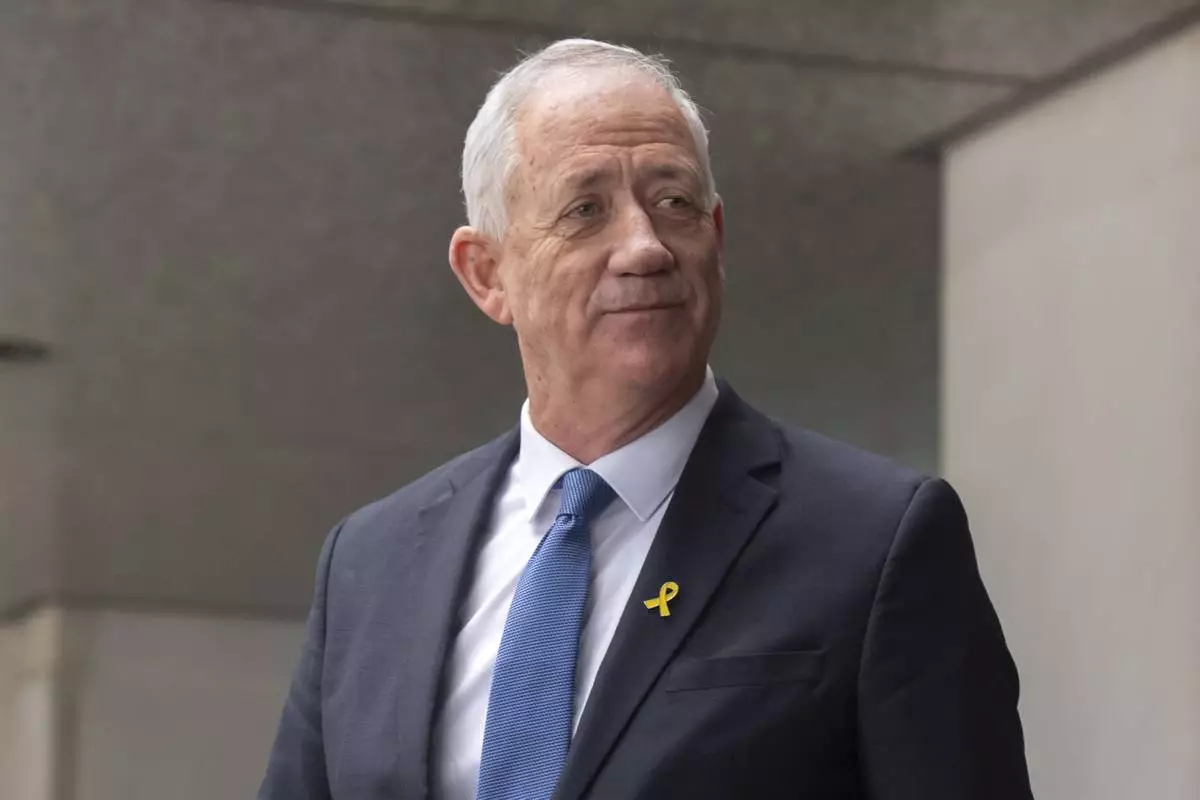
FILE - Benny Gantz, a key member of Israel's War Cabinet and the top political rival of Israeli Prime Minister Benjamin Netanyahu, leaves after a meeting at the State Department, Tuesday, March 5, 2024, in Washington. (AP Photo/Mark Schiefelbein, File)
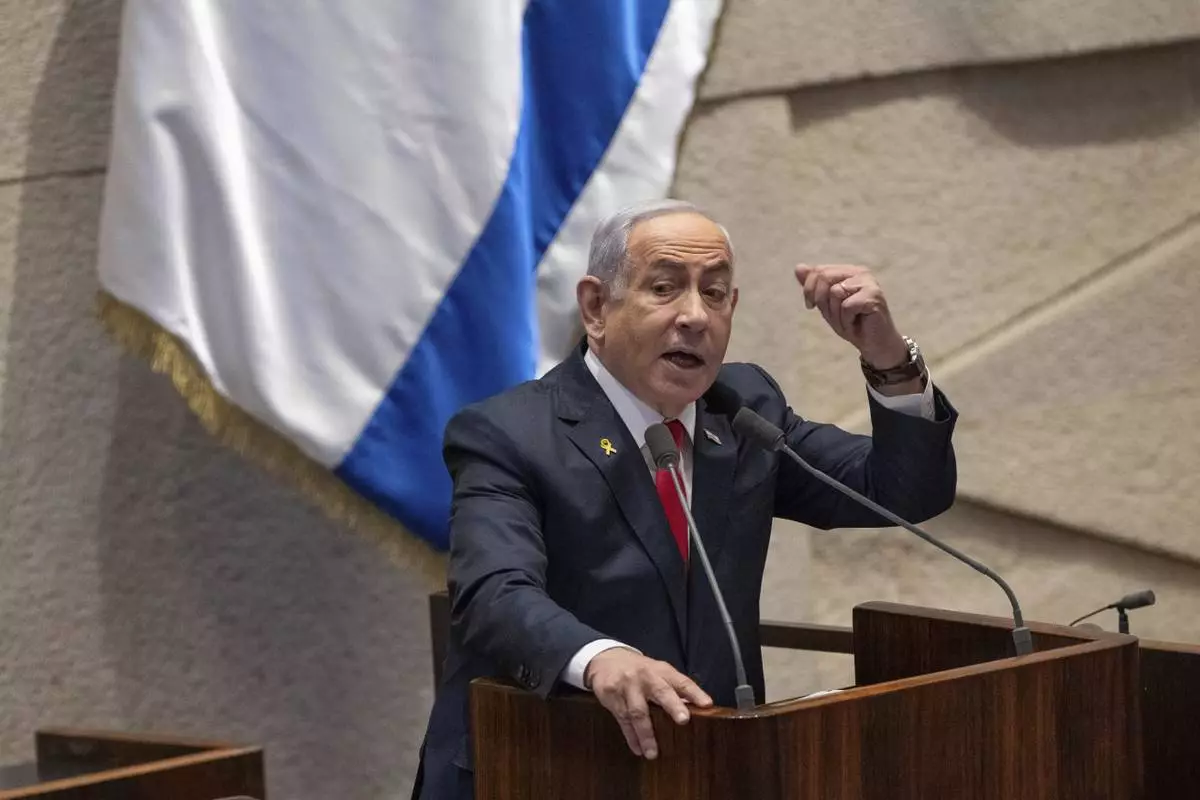
FILE - Israel's Prime Minister Benjamin Netanyahu addresses lawmakers in the Knesset, Israel's parliament, in Jerusalem. Monday Nov. 18, 2024. (AP Photo/Ohad Zwigenberg, File)
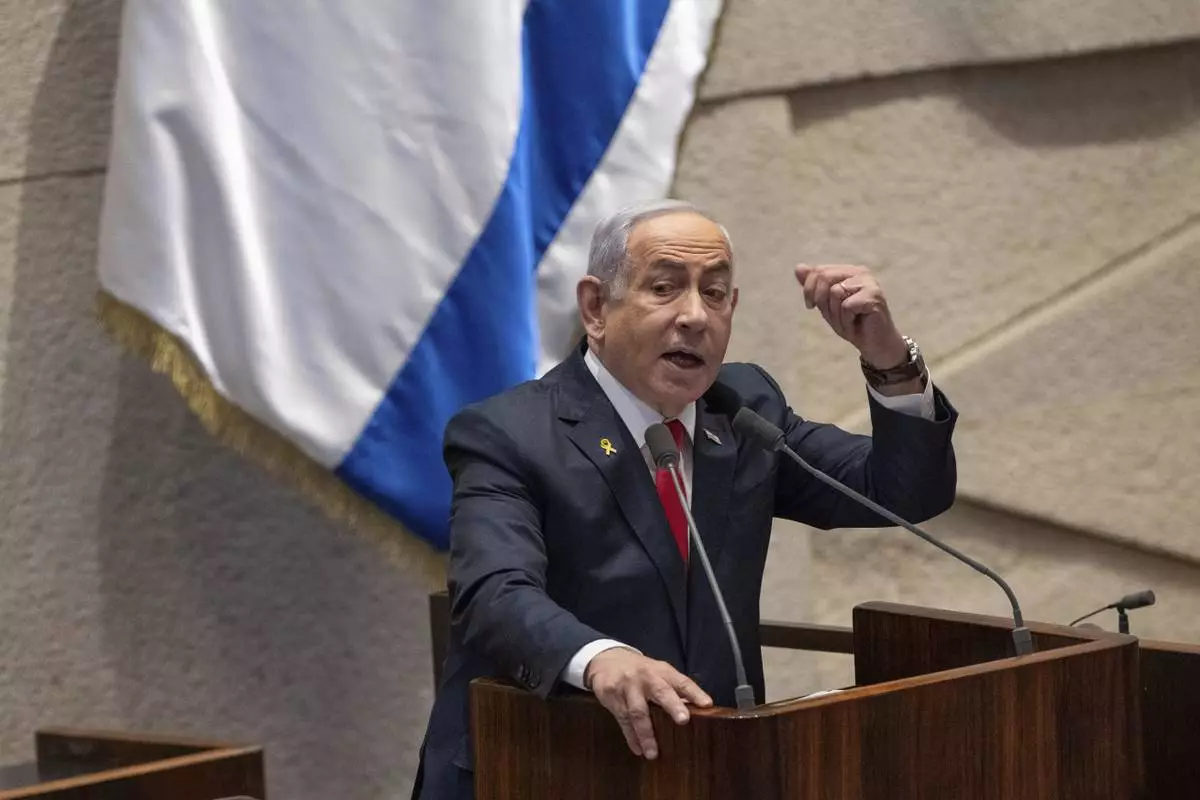
Israel's Prime Minister Benjamin Netanyahu addresses lawmakers in the Knesset, Israel's parliament, in Jerusalem. Monday Nov. 18, 2024. (AP Photo/Ohad Zwigenberg)







